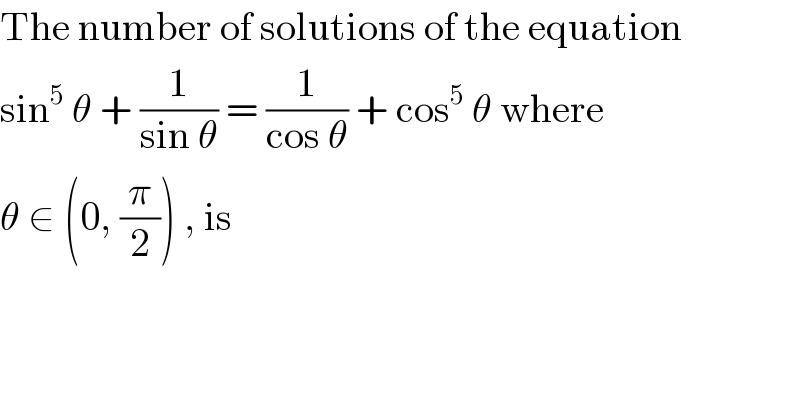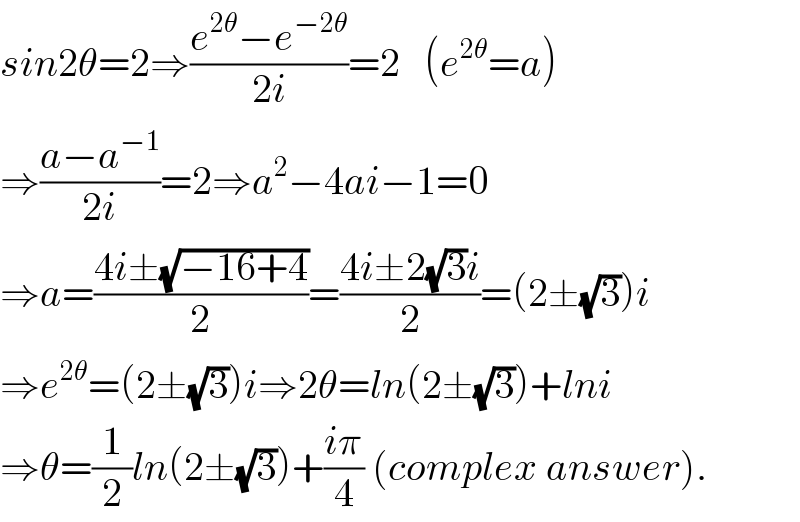
Question and Answers Forum
Question Number 18962 by Tinkutara last updated on 02/Aug/17

Answered by behi.8.3.4.1.7@gmail.com last updated on 02/Aug/17
=0 1)a=b⇒sinθ=cosθ⇒tgθ=1⇒θ=kπ+(π/4),k∈Z 2)a^4 +b^4 =(a^2 +b^2 )^2 −2a^2 b^2 =1−2a^2 b^2 a^3 b+ab^3 =ab(a^2 +b^2 )=ab ⇒ab(1−2a^2 b^2 +a^2 b^2 +ab)−1=0 ⇒ab(1+ab−a^2 b^2 )−1=0 (ab=t) ⇒t(1+t−t^2 )−1=0⇒−t^3 +t^2 +t−1=0 ⇒t^3 −t^2 −t+1=0⇒t^2 (t−1)−(t−1)=0 ⇒(t−1)(t^2 −1)=0⇒(t−1)^2 (t+1)=0 ⇒t=1,−1⇒sinθ.cosθ=±1⇒sin2θ=±2 this eq. has not real answers.](Q18985.png)
Commented by Tinkutara last updated on 02/Aug/17

Commented by behi.8.3.4.1.7@gmail.com last updated on 04/Aug/17

Commented by Tinkutara last updated on 04/Aug/17

